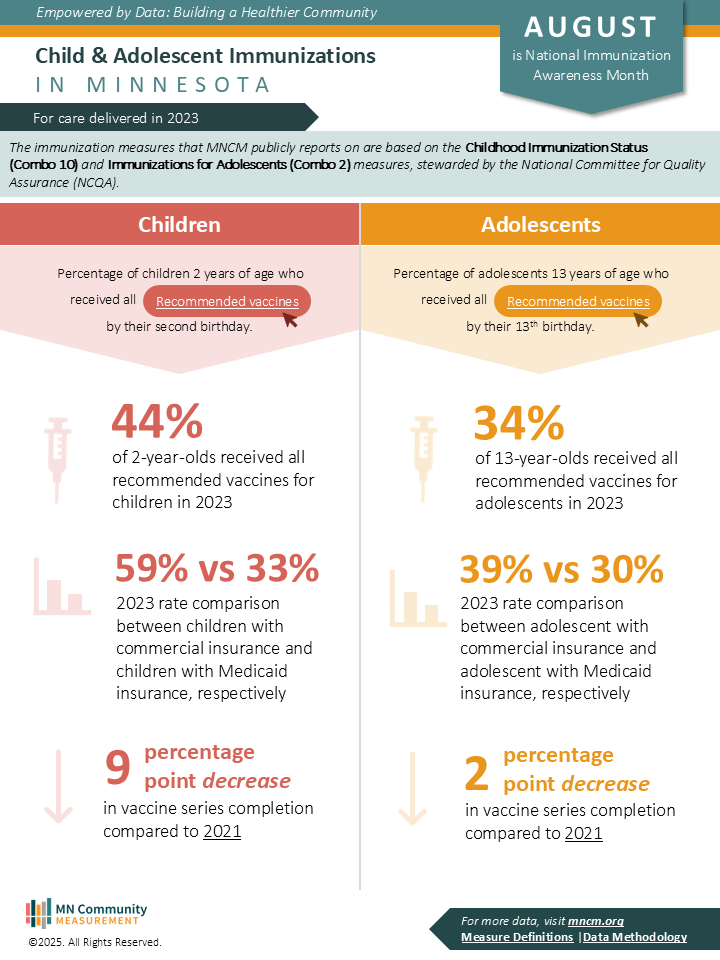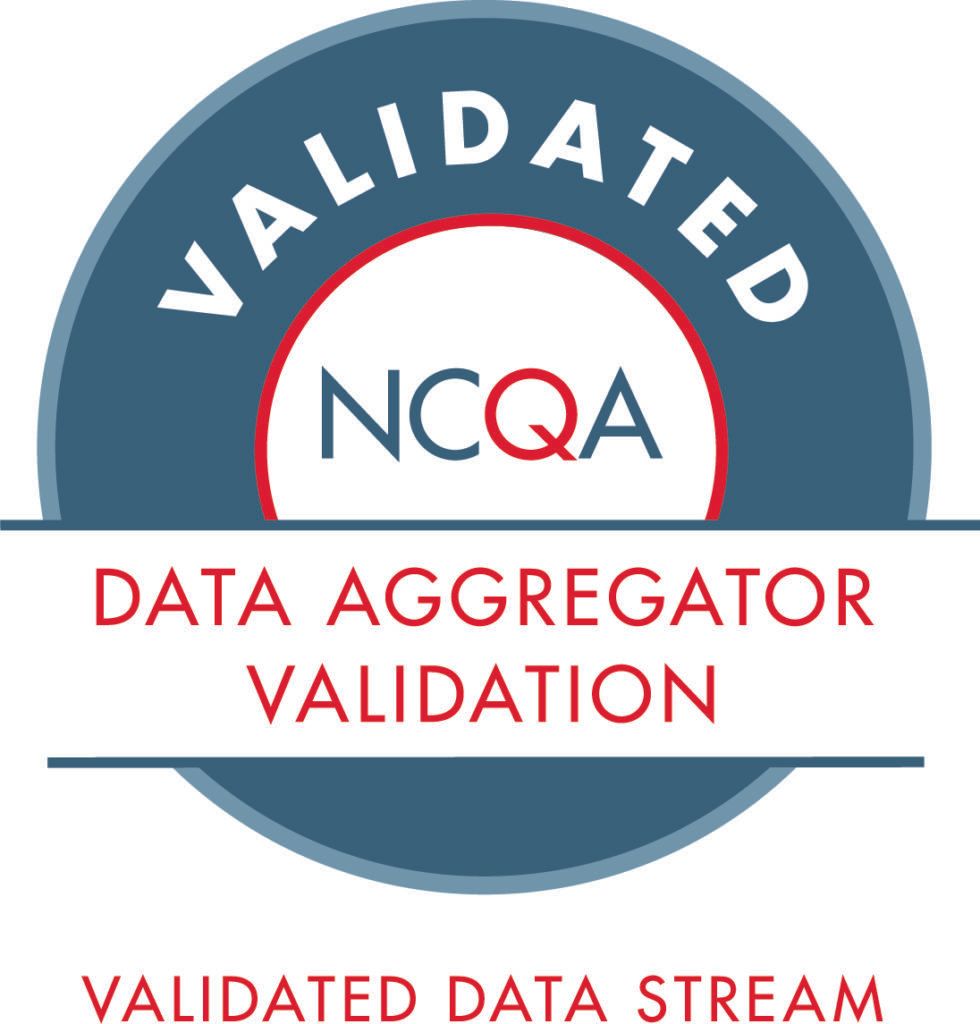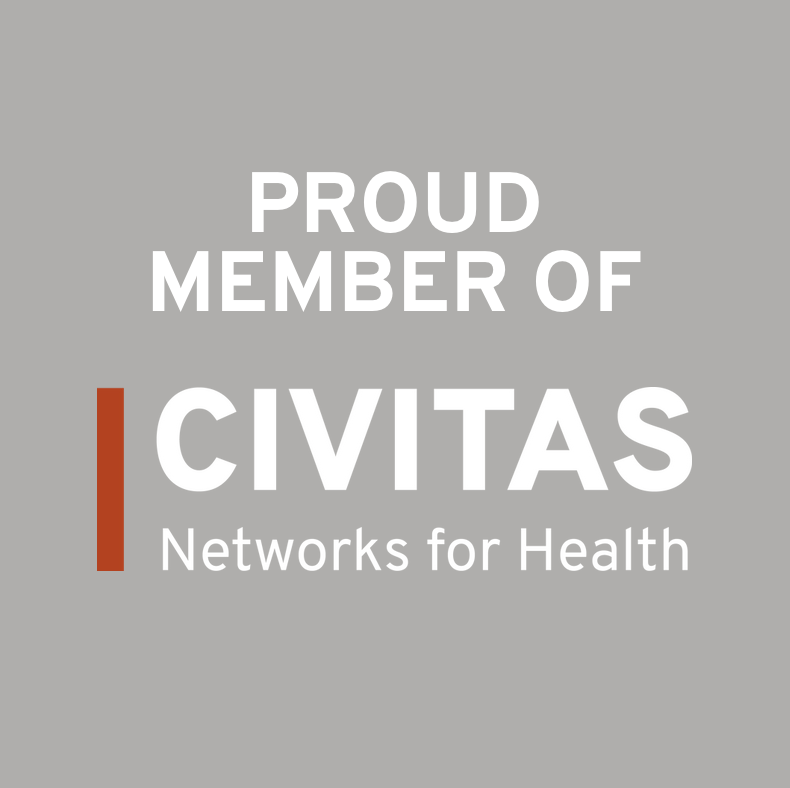Minnesota Health Care Quality Report Highlights High Performing Medical Groups, Statewide Room for Improvement
February 28, 2019
MINNEAPOLIS – February 28, 2019 – MN Community Measurement (MNCM), an independent nonprofit organization that empowers health care decision makers with meaningful data to drive improvement, has released a report highlighting quality measures for health care provided by medical groups across Minnesota. The “2018 Minnesota Health Care Quality Report,” presents data collected by MNCM, including an online appendix with comparisons by medical group and clinic. Several medical groups are recognized for achieving high performance on at least 50 percent of the measures for which they were eligible.
Addition of New Statewide Analysis
MNCM added a new statewide analysis showing that substantial gains could be achieved if performance on quality measures was raised to a benchmark level defined by current high performers. An example of this is illustrated with the average rate for colorectal cancer screening. The current statewide average rate for colorectal cancer screening is 71 percent; however, the benchmark is at 75 percent. Another example is outlined in optimal asthma control for children. The statewide average is 58 percent, with the benchmark at 71 percent. For these examples, if all medical groups achieved the benchmark levels, over 54,000 more patients would be screened for colorectal cancer and over 9,000 more children would have their asthma under control. (See report, page 8.)
“The benchmark analysis illustrates the potential impact of raising statewide performance to the current level of groups with highest performance,” says MN Community Measurement President Julie Sonier. “However, for some measures – such as the measures for depression care – the current benchmarks are low, which calls attention to the need for improvement across the board to get better health outcomes for Minnesotans.”
High Performing Medical Groups
The report recognizes eight primary care or multi-specialty medical groups that have achieved high performance on at least 50 percent of the measures for which they were eligible. These medical groups are:
- Allina Health
- Entira Family Clinics
- Essentia Health
- HealthPartners Clinics
- Mankato Clinic
- Mayo Clinic
- Park Nicollet Health Services
- Stillwater Medical Group
High Performing Pediatric Groups
The report also recognizes four pediatric groups that achieved high performance on at least 50 percent of the pediatric measures for which they were eligible. These pediatric groups are:
- Central Pediatrics
- Fridley Children’s and Teenagers’ Medical Center
- South Lake Pediatrics
- Wayzata Children’s Clinic
South Lake Pediatrics Chief Medical Director Michael Garvis, M.D., says, “We have seen steady and consistent improvement and have continued to make small changes along the way, as new suggestions or best practices have surfaced. This has resulted in excellent vaccination rates, as well as low emergency room and hospitalization rates for asthma and mental health patients. We have also been able to intervene with our chronic patients with the consistency of our care coordinators who focus on our mental health, chronic asthma, developmentally challenged, and medically complex patients.”
Showing Consistent Improvement
Ten medical groups demonstrated consistent improvement on multiple measures over time. Consistent improvement is defined as having at least a two-percentage point increase each year since 2016. Medical groups showing consistent improvement include:
- Cuyuna Regional Medical Center
- Entira Family Clinics
- Fairview Mesaba Clinics
- HealthEast Clinics
- Hutchinson Health
- Lakewood Health System
- Mayo Clinic
- Park Nicollet Health Services
- Ridgeview Sibley Medical Center
- Sanford Health – Sioux Falls Region
Lakewood Health System, located in central Minnesota, and Park Nicollet Health Services, achieved consistent improvement on five measures since 2016.
“At Lakewood, we use all available resources including our internal data, state, county, and even our local schools to help improve the health of the communities we serve,” says Lakewood Chief Medical Officer John Halfen. “Having this information is crucial and allows us to put strategies in place through our care teams, education, and systems changes, which can directly impact those areas needing improvement. In doing this, we have seen an immediate benefit to our population health which the long-term viability of our system is dependent on.”
About MN Community Measurement
MN Community Measurement is a nonprofit organization dedicated to empowering health care decision makers with meaningful data to drive improvement. A trusted source of health care data since 2005, MNCM works with doctors, hospitals, clinics, insurance companies, and state agencies to collect, analyze, and report health care data related to quality, cost, and patient experience. Learn more at
www.mncm.org.
Posted in Press Release
Recent Posts







